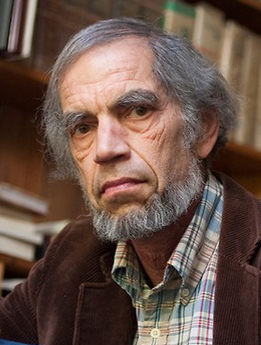Michael Heim, a UCLA professor of Slavic Languages and Literatures who was known for his literary translations, died on Sept. 29 after a long battle with melanoma. He was 69.
Heim is remembered by his students and friends as a gentle and scholarly man who devoted his life to the study of language. He is professionally well-known for his translations of Eastern European literature into English.
“He knew that translation needed to be taken seriously as an academic discipline, at a time when people thought that it was irrelevant,” said Efrain Kristal, chair of the Department of Comparative Literature who worked with Heim.
Kristal said Heim’s tireless dedication helped shift translation from a subject in the margins to one in the forefront of humanities studies in universities across the country. He was actively involved in organizations that supported translation and set up workshops so scholars could meet together and discuss their work.
While Heim learned more than 12 languages in his lifetime, he started his career path studying foreign languages in high school.
He graduated from Columbia College in 1964 with degrees in Oriental Studies and Russian. He went on to receive his doctorate from Harvard University in Slavic Languages and Literatures.
Heim joined the UCLA faculty in 1979, where he met his future wife Priscilla, who was also studying languages at the time.
She said her husband was devoted to translation because he believed it was important for different cultures to be able to communicate their ideas to each other.
Together they made contributions to the advancement of translational studies, including a recently revealed $734,000 anonymous donation to the PEN American Center, an organization that supports literature and translation.
“He was not at all a wealthy man, but he had invested this money and gave it all away to support translation,” said Esther Allen, a professor at Baruch College and former chairwoman of the center. “He was so generous, not only with his money, but his time.”
Boris Dralyuk, a current lecturer in Slavic Languages and Literatures, said he applied to UCLA as an undergraduate student in 1999 for the sole purpose of having the chance to study under Heim. Dralyuk said he remembers walking into Heim’s office on the first day of school, hoping Heim would at least consider looking at a stack of poems he had translated from Russian.
“The minute I mentioned translation, his eyes lit up and he came around his desk and sat right next to me and spent the next hour going through my work, line by line,” Dralyuk said. “As long as a student needed him, he would be there.”
In the days before he died, Heim was still making appointments to meet with students to discuss their projects.
Tom Chen, a fourth-year doctoral student, had plans to meet with Heim to discuss a Chinese language project they were working on together before he died.
“I would see him around campus with his bulging backpack filled with books, and he was always listening to literature on tape,” Chen said. “He never stopped learning and he always could relate to how difficult it could be for students.”
Heim was also in the process of studying Chinese. Kristal said he would see his colleague writing notes during faculty meetings in Chinese characters, which was his way of both paying attention and practicing a new language.
Additionally, he was scheduled to teach a fully enrolled translational workshop during fall quarter, but it was cancelled because his health was declining.
In his private life, Priscilla Heim said her husband was an avid musician and had a constant stream of visitors for dinner and lively discussions.
“Everything was a joint effort since we were both interested in improving the life of communication in the world,” said Priscilla Heim, who stopped working during their marriage to devote time to their domestic life. “We had a very rich life together, reading and learning.”
Heim is survived by three stepchildren and seven grandchildren.
There will be no public memorial service, but the Department of Comparative Literature plans to honor Heim by establishing a yearly lecture, named the “Michael Heim Lecture in Translational Studies.”
